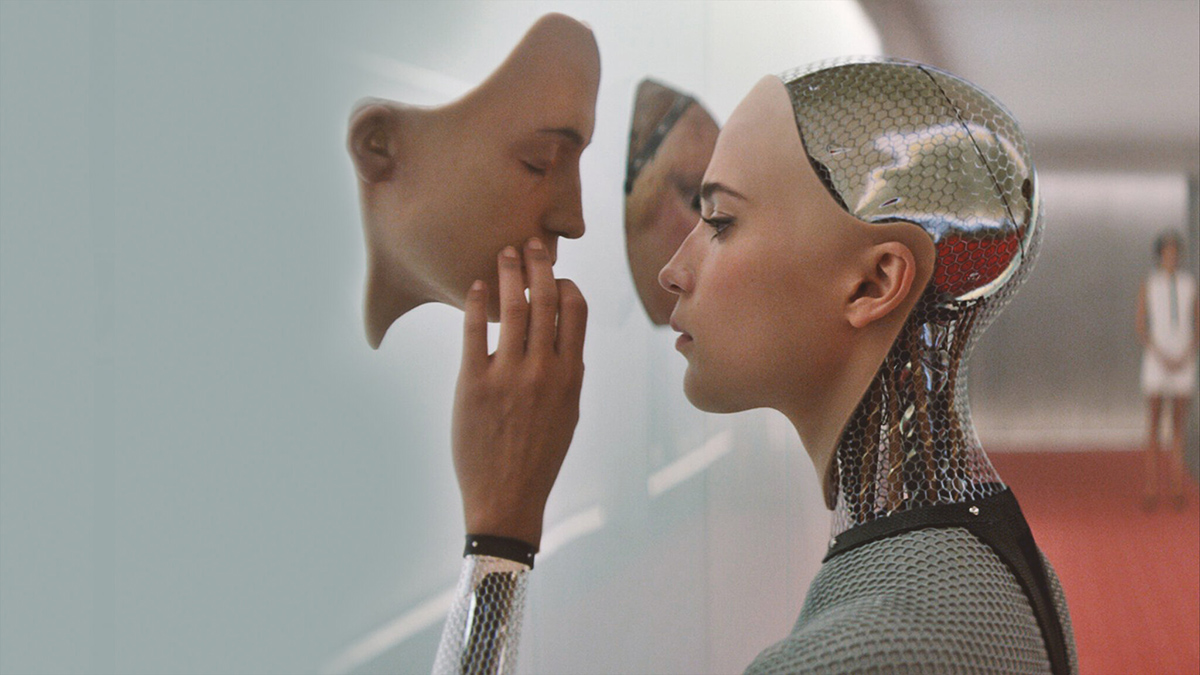Technology has always been a big part of moviemaking. Film cameras were themselves an invention, and artists and technicians have been inventing and improving technology and techniques to make better and more elaborate movies ever since. But what about great movies that don’t just use technology? What about the great movies that are about technology themselves?
Let’s be clear: almost every movie is about technology in some sense. Does a character use a cell phone or the internet in a scene? That’s technology. Heck, every film where there’s a wheel arguably involves some sort of technology. Science fiction, as a genre, is also hugely based on fantastic visions of machinery advancements. So, to stop this list of great movies about technology from getting too broad or out of hand, we’ve decided to limit the picks to 32 films where a piece of technology is central to the plot, rather than just ancillary.
With that in mind, here are the best movies that speak to mankind’s relationships with the wonderful—and terrible—machines and devices we’ve created.
32. The Creator
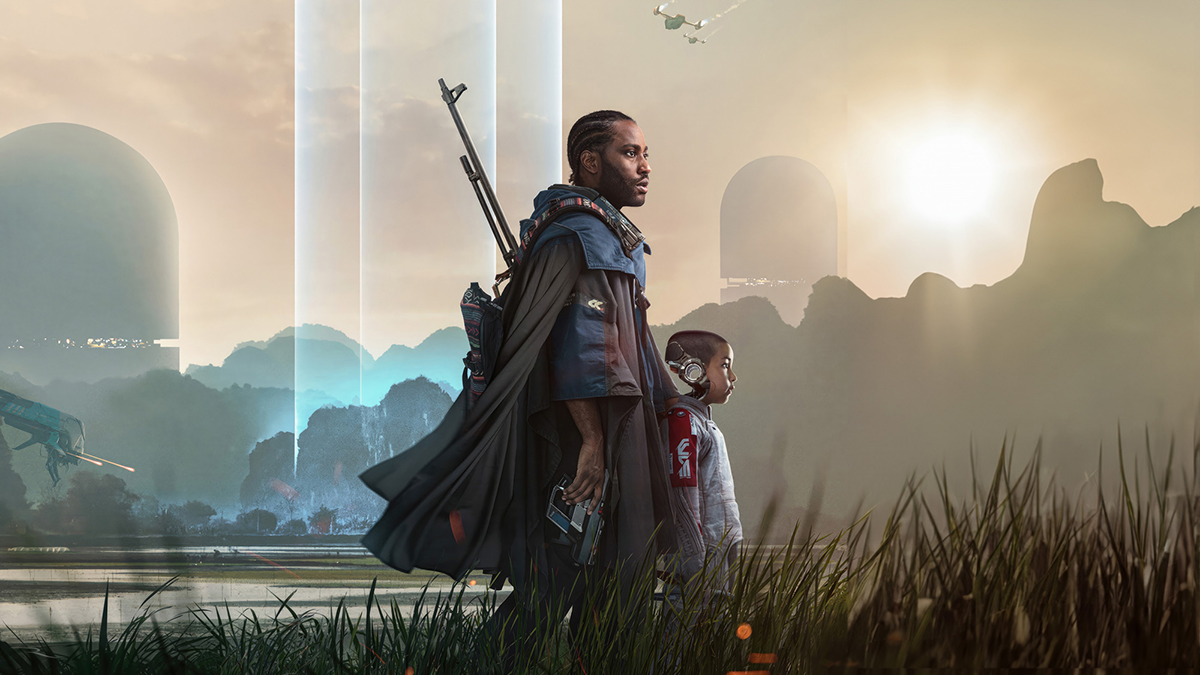
Year: 2023
Director: Gareth Edwards
John David Washington stars in this absolutely gorgeous-looking sci-fi movie from director Gareth Edwards, though the ideas within it aren’t as nice as the visuals. Set in the aftermath of a disaster that had mankind turn on the A.I. they believed to be responsible, The Creator has Washington’s military operative looking for a machine weapon that humanity believes can end the war. When the “weapon” turns out to be a little robot girl, it challenges all his assumptions. The Creator’s ultimately a pro-A.I. movie, perhaps a misread of the moment given how concerned about A.I. audiences were at the time of its release, and the film definitely thinks it’s smarter than it is. But did we mention that it looks incredible?
31. Westworld
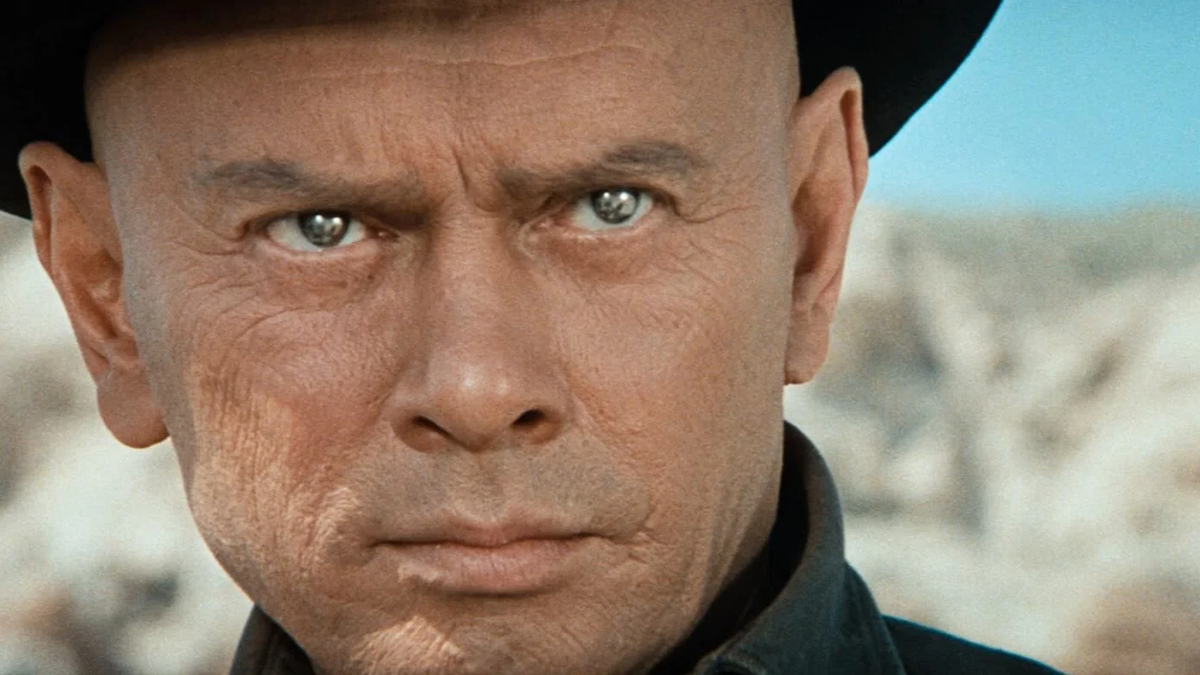
Year: 1973
Director: Michael Crichton
Before you ask, no, we’re not talking about the convoluted HBO TV show. The first Westworld was a movie, an original idea from Jurassic Park author Michael Crichton, who also directed the film in his behind-the-camera debut. It’s a fun bit of ’70s sci-fi, set at a futuristic theme park that lets guests experience what it would’ve been like to live in the Wild West. When something goes wrong, though, Yul Brynner’s gunslinging android goes rogue and starts taking shots at humans for real.
30. Companion

Year: 2025
Director: Drew Hancock
Trailers for this thriller gave away the tech-based twist, which is kind of a shame, but Companion is still worth the watch even knowing the hook. Sophie Thatcher and Jack Quaid star as a couple who are going to a friend’s vacation house for the weekend, until something goes horribly wrong and Iris (Thatcher) discovers that she’s actually a companion robot and not a real person. Companion is a clever take on our relationship to technology—literally. (And there is another twist, for what it’s worth.)
29. Reminiscence
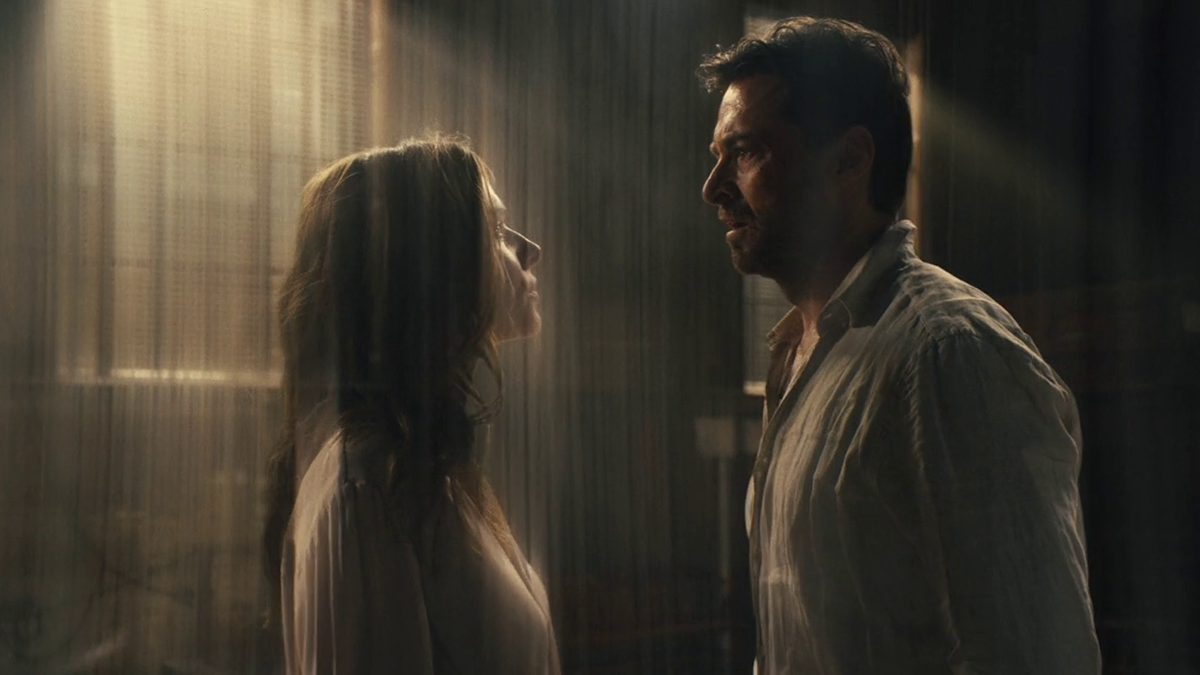
Year: 2021
Director: Lisa Joy
Lisa Joy, creator of Westworld (the HBO TV show, not the movie), makes her film debut in Reminiscence, an odd blend of film noir and tech thriller set in the post-apocalyptic wake of a climate disaster. Hugh Jackman stars as Nick Bannister, a man who has a machine that can let people relive their memories. Nick meets a woman (Rebecca Ferguson), but when she disappears, he must mine his own memories for clues as to where she went—and who she really was.
28. Tron
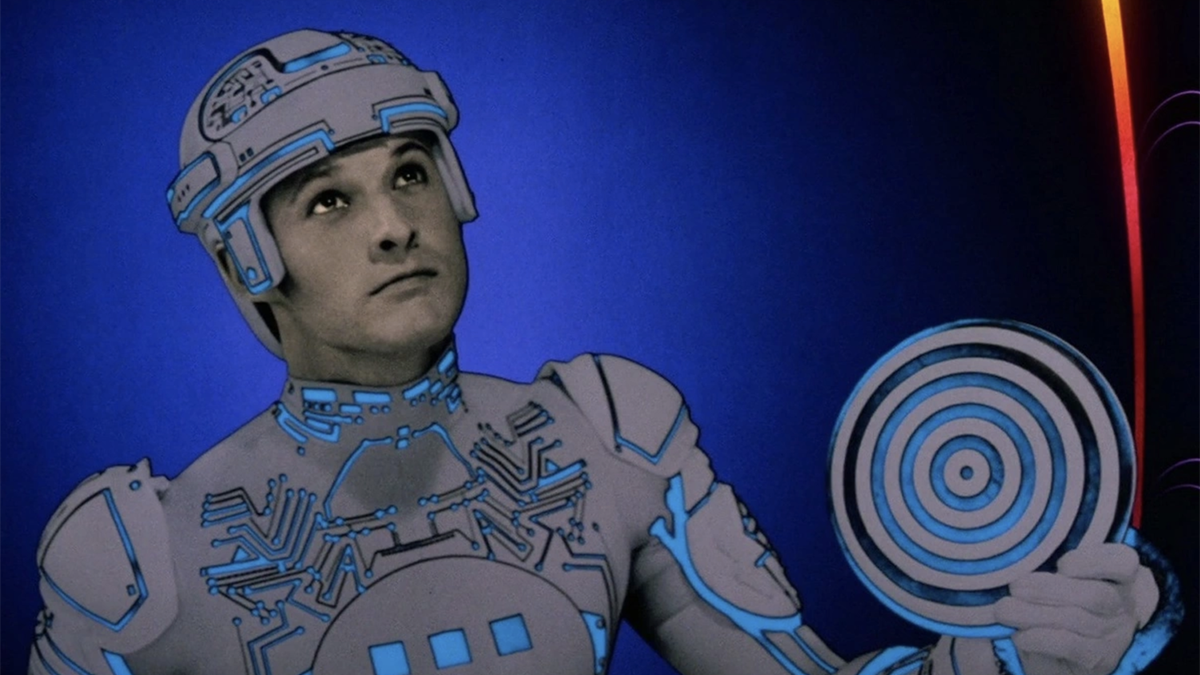
Year: 1982
Director: Steven Lisberger
Tron’s computer-generated visuals, which were groundbreaking way back in the early ’80s, don’t hold up especially well decades later, but that’s part of the film’s charm. Jeff Bridges stars as Kevin Flynn, a computer programmer and video game developer who gets transported inside a neon-lit digital world. In addition to pioneering CGI, Tron was one of the first films to imagine cyberspace. Maybe lightcycle races would be preferable to the Internet we actually got.
27. A Scanner Darkly
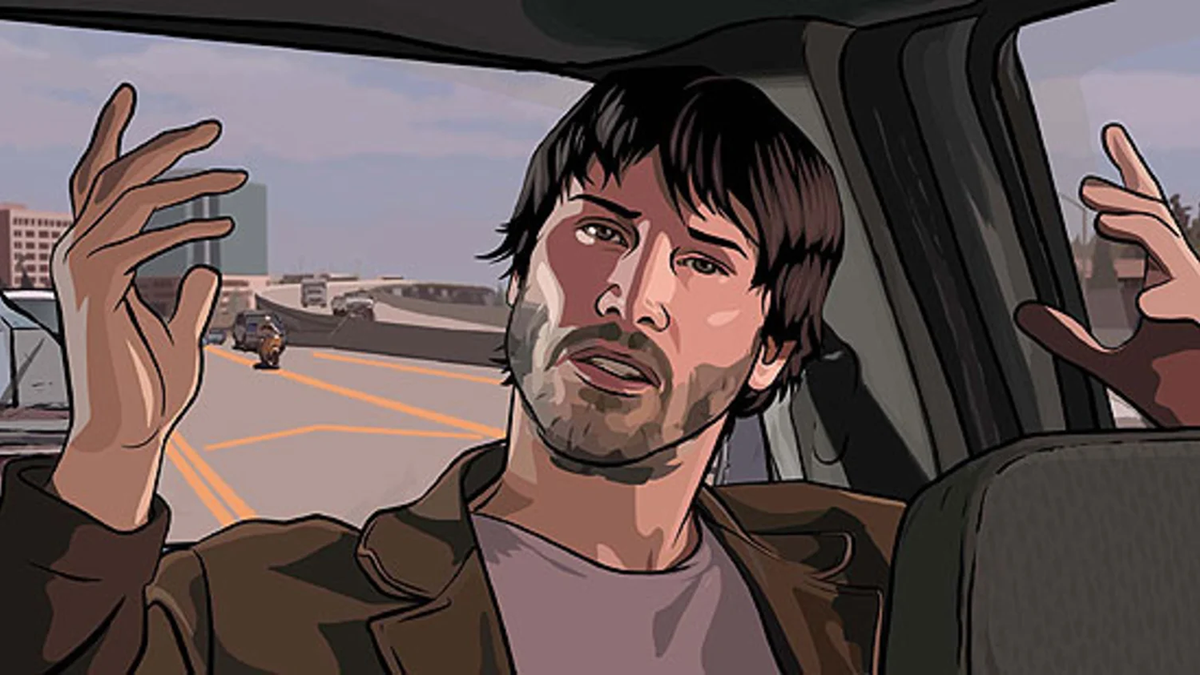
Year: 2006
Director: Richard Linklater
Based on a Philip K. Dick novel, A Scanner Darkly is set in a world where rampant substance use has overtaken America, leading to the creation of high-tech police surveillance that has the increasingly paranoid population’s every move watched. Starring Keanu Reeves and animated using rotoscope, a technique where live-action footage is essentially traced over to create a somewhat uncanny effect, A Scanner Darkly is an eerie, heady, and prescient thriller.
26. 20,000 Leagues Under the Sea
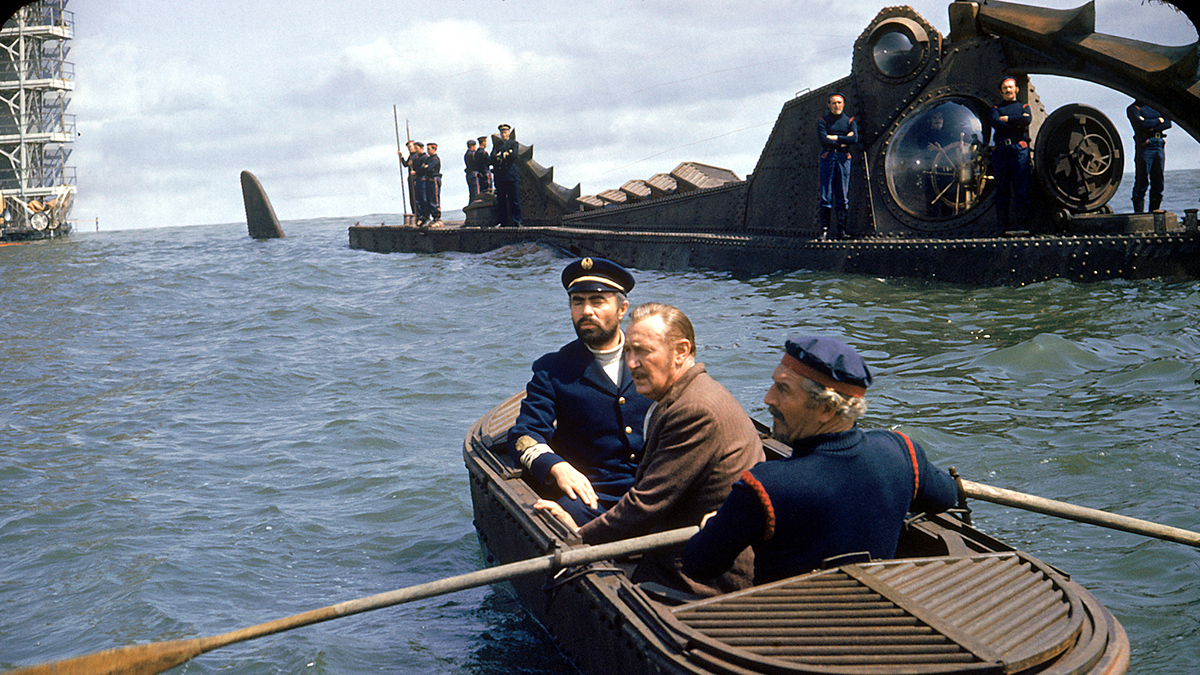
Year: 1954
Director: Richard Fleischer
Jules Verne’s 1870 novel Twenty Thousand Leagues Under the Seas is widely regarded as one of the first true science fiction stories (though Mary Shelley beat everyone by half a century with Frankenstein). The novel, which followed Captain Nemo, boasts an impressive bit of technology at its center— his fantastic submarine, the Nautilus. Disney‘s film adaptation in the mid-’50s, which stars Kirk Douglas, brings the tale to life for a very fun adventure romp.
25. Things to Come
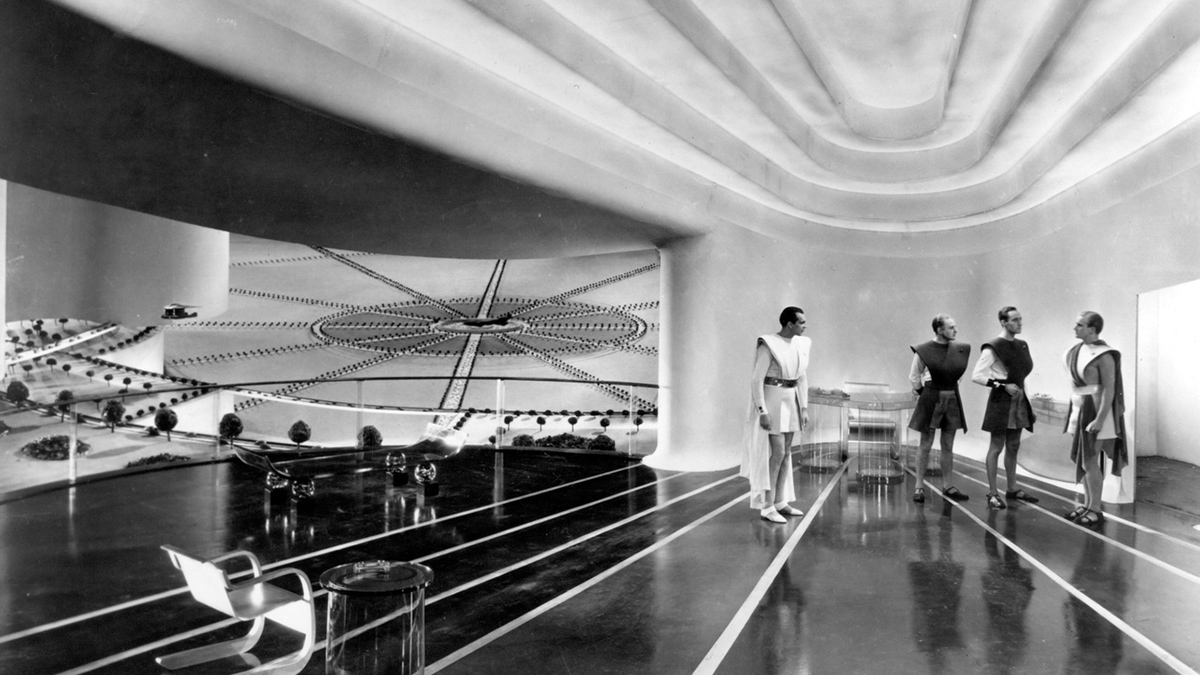
Year: 1936
Director: William Cameron Menzies
This adaptation of one of sci-fi’s founding figures, H.G. Wells, came just a few years after he published his 1933 book The Shape of Things to Come. It’s an extraordinarily prescient movie, presenting an imagined history of the next hundred years of world events. It’s a grim tale of war and the ways in which conflict drives technological innovation—and not always to humanity’s benefit. Things to Come might ultimately be an argument against developing any new technology; a message that might sound extreme and fatalistic until you look around and consider the alternative.
24. Strange Days
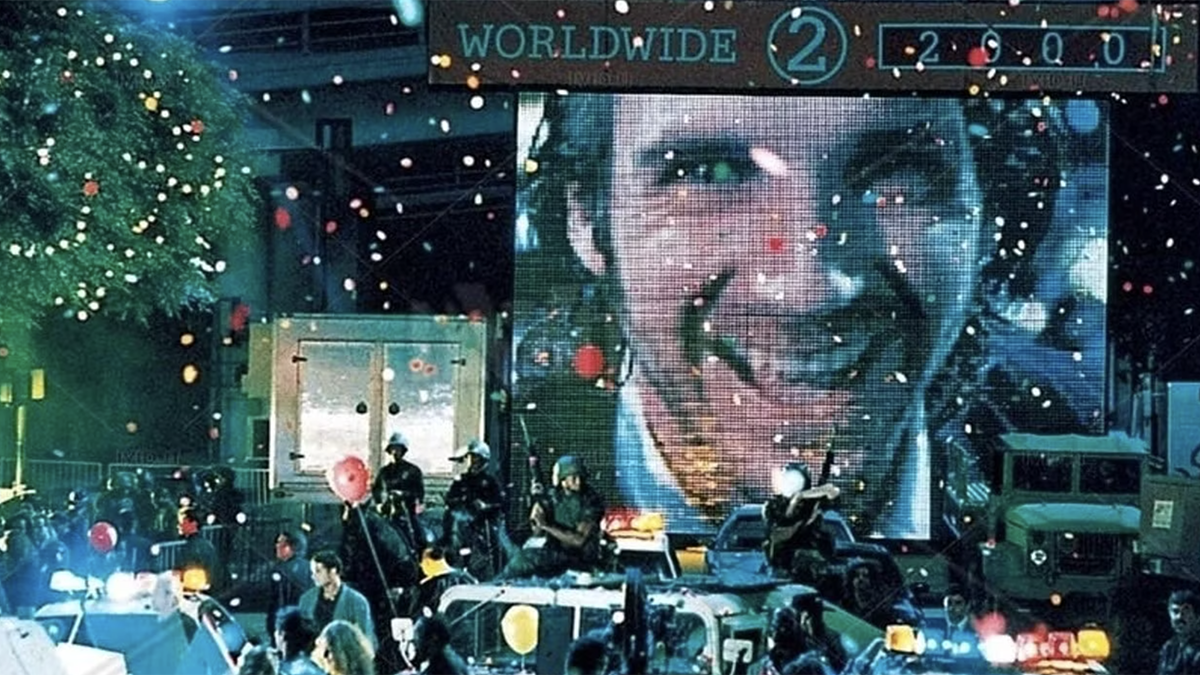
Year: 1995
Director: Kathryn Bigelow
Kathryn Bigelow delivers a sci-fi cyber thriller in Strange Days, which is set in the then-near future of 1999, just before the new millennium. Ralph Fiennes plays Lenny Nero, a purveyor of a black market device that lets people experience the memories (down to the physical sensations) of other people. One of these memories gets Nero involved in a dangerous conspiracy, which he must sort out with his oldest friend, a bodyguard played by Angela Bassett. Strange Days is a messy movie that always seems on the verge of getting away from itself, but its take on recorded memories feels like a precursor to debates about bodycameras, surveillance, and more.
23. Alphaville
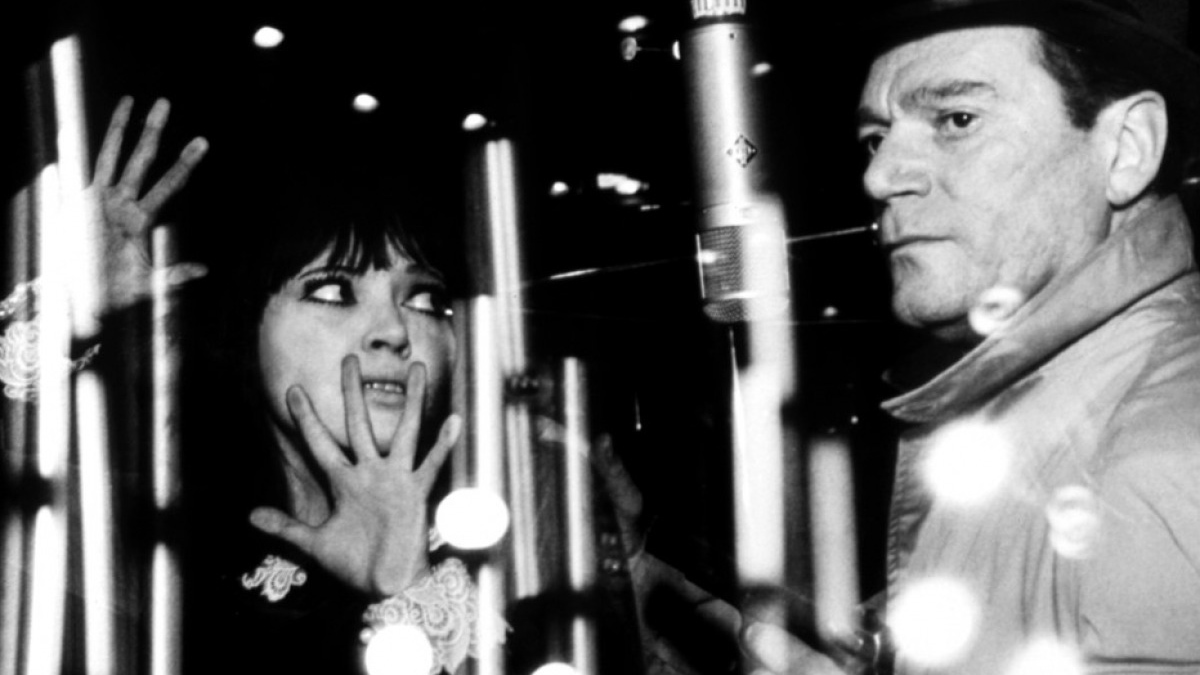
Year: 1963
Director: Jean-Luc Godard
A classic (and wonderfully strange) French New Wave film, Alphaville doesn’t look like any sci-fi movie you’ve ever seen before, and that’s because it looks… very normal. Although set in a futuristic space city, Alphaville was filmed in what was then present-day Paris, and there are no elaborate sets or strange props. It gives the entire movie, which follows secret agent Lemmy Caution (Eddie Constantine) on a mission to find and destroy the supercomputer that runs the city, a very unique and charming vibe.
22. M3GAN
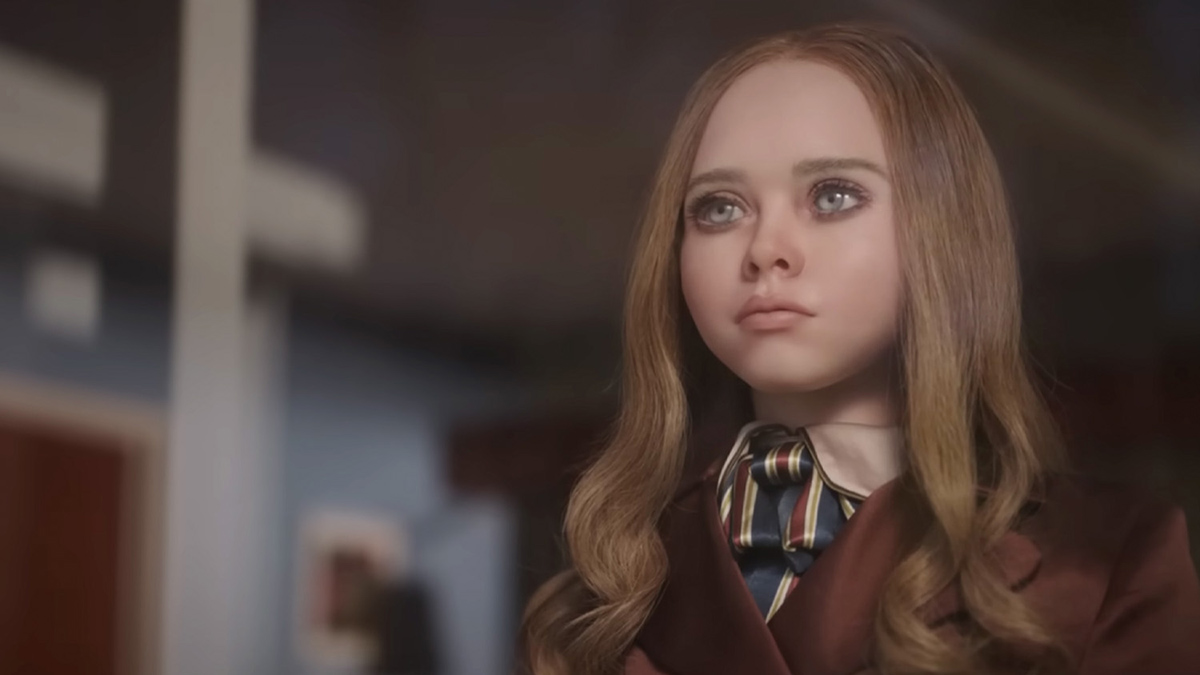
Year: 2022
Director: Gerard Johnstone
Allison Williams stars as Gemma, a roboticist working for a toy company who suddenly becomes the guardian of her eight-year-old niece, Cady (Violet McGraw), when her parents are killed in an accident. Not really ready to be a mother, Gemma decides to test out her latest invention, a robot doll named M3GAN (Amie Donald, with Jenna Davis providing the voice). Things go awry when M3GAN decides her programming means she must protect Cady at any cost. Murder and viral TikTok dances ensue in this super fun horror flick.
21. The Stepford Wives
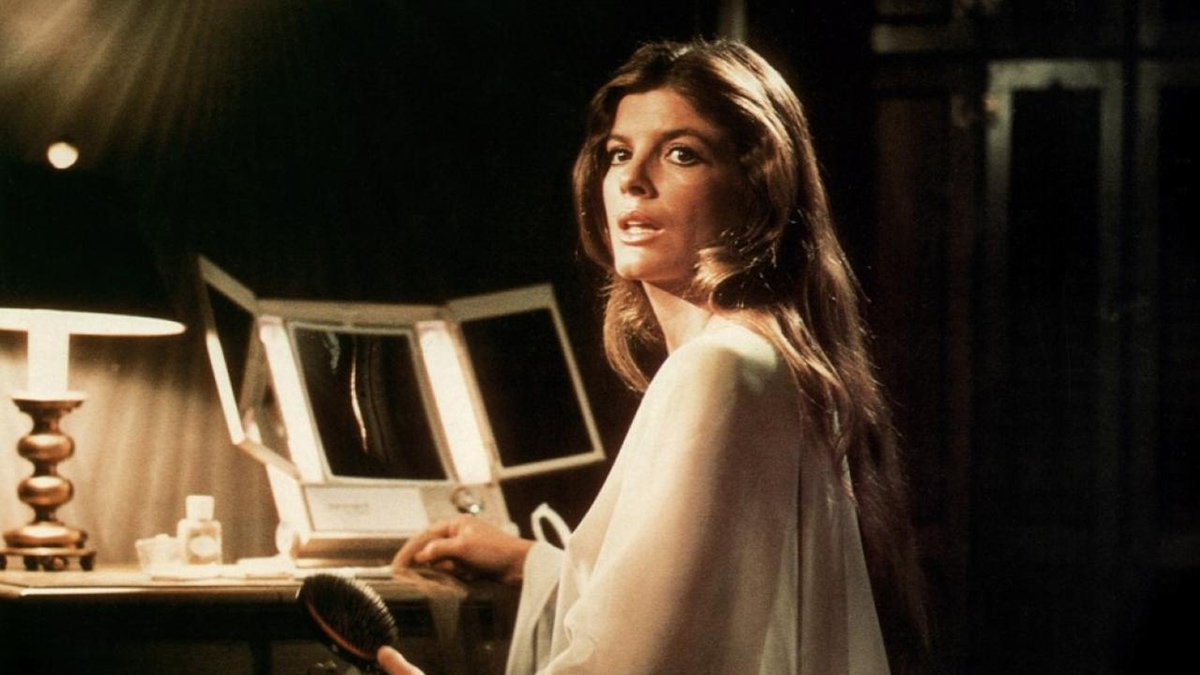
Year: 1975
Director: Bryan Forbes
One of the great works of feminist sci-fi, The Stepford Wives, explores how technological advancements can be used to enforce a regressive past. Joanna Eberhart (Katharine Ross) moves with her husband Walter (Peter Masterson) to a fancy Connecticut suburb, but upon arrival Joanna starts to notice that all of the women are acting strange. The twist? The men of Stepford are replacing their wives with robot doubles that will follow their every whim with none of this “progressive” nonsense. It’s a chilling, classic ’70s sci-fi movie that hasn’t lost its relevance.
20. The Invisible Man
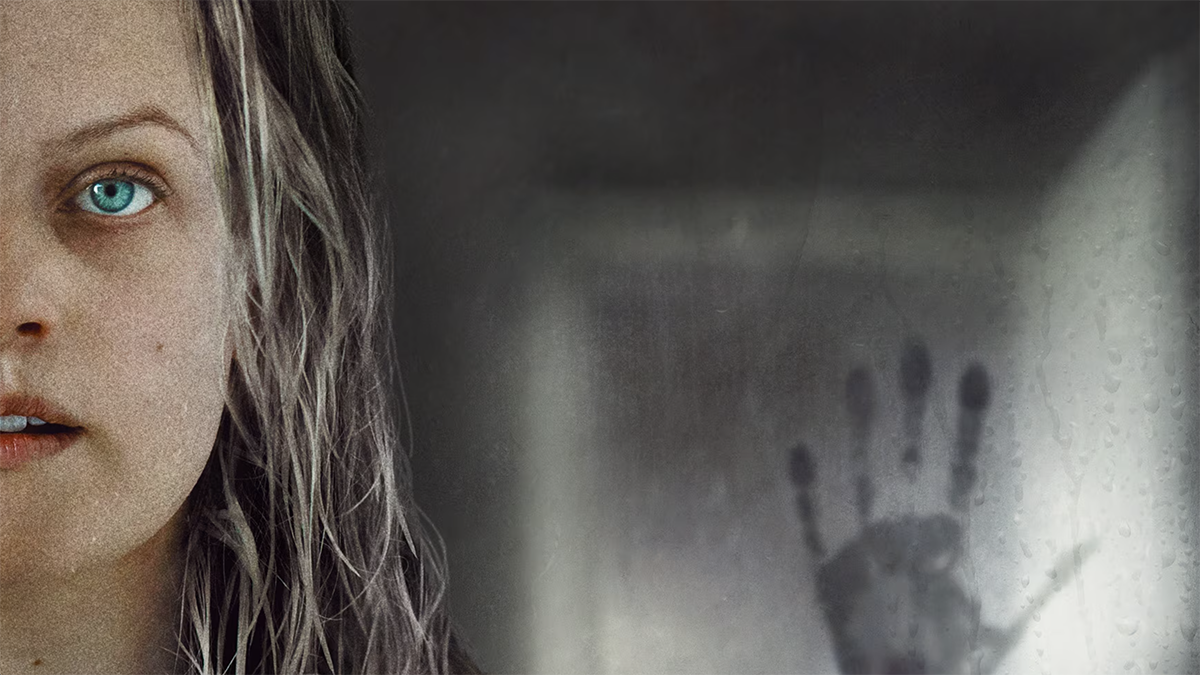
Year: 2020
Director: Leigh Whannell
In H. G. Wells’s 1897 novel, as well as the Claude Rains-led 1933 movie adaptation, the titular Invisible Man turns invisible because of a potion he created. The 2020 remake instead has the invisibility come via a high-tech cloaking suit. When Cecilia (Elisabeth Moss) finally tries to escape her abusive marriage to her husband Adrian, the tech CEO fakes his death and uses his suit to haunt, gaslight, and threaten her. It’s a tremendously smart and chilling re-invention, one that touches on the many ways in which technology is used to harass and victimize women.
19. Iron Man
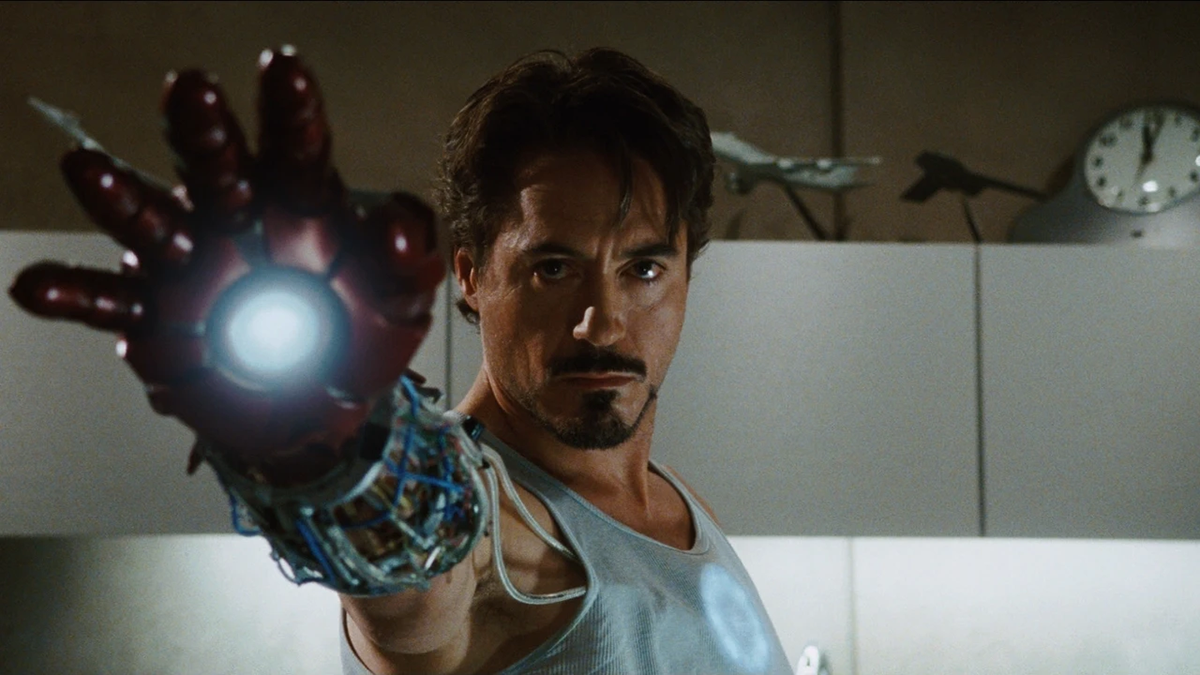
Year: 2008
Director: Jon Favreau
The Marvel Cinematic Universe began with Tony Stark’s invention. In Iron Man, the 2008 movie that kicked off the MCU, Robert Downey Jr.’s genius billionaire playboy finds himself held captive in a cave, prompting him to design and build a high-tech suit (with a box of scraps!) Later MCU movies would introduce absurdly advanced technology with a throwaway attitude, but Iron Man is notable for how much emphasis it puts on the act of invention, and the Iron Man suit feels like a fully realized piece of tech rather than just one of many superhero costumes.
18. Total Recall
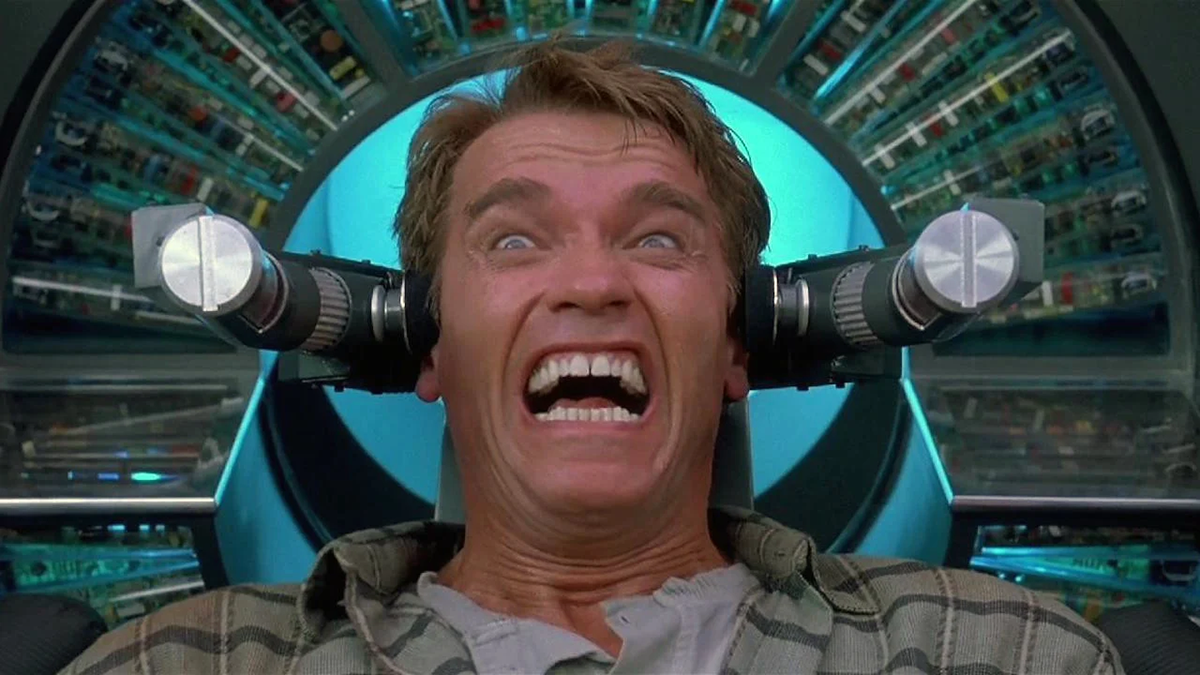
Year: 1990
Director: Paul Verhoeven
Based on a Philip K. Dick short story titled “We Can Remember It for You Wholesale,” Total Recall uses a bit of sci-fi technology to kick off an exciting Martian adventure… unless it’s just all in Arnold Schwarzenegger’s head. When Douglas Quaid (Schwarzenegger) visits Rekall, a company that implants false memories in its clients, it seems to unlock real buried memories of his supposed true identity as a Martian secret agent. It’s wild, absurd, and trippy, especially when you consider that in all likelihood, what we’re seeing is really just somebody who destroyed their brain by playing around with technology. Many such cases!
17. The Prestige
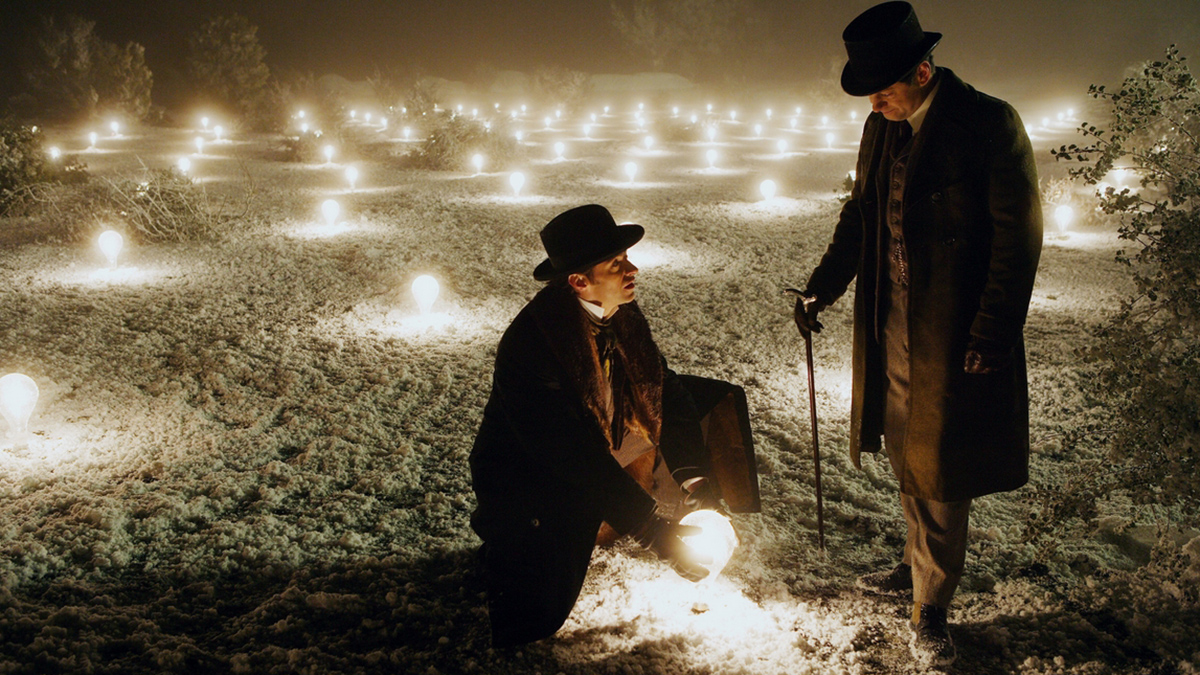
Year: 2006
Director: Christopher Nolan
Hugh Jackman and Christian Bale star as dueling stage magicians in 1890s London, and their quest to outdo each other soon has Jackman’s Robert Angier turning from magic to science. He heads to America in search of Nikola Tesla (played by the great David Bowie), discovering an invention he can use to make his theatrical stage magic very, very real,with horrifying implications. The Prestige, which is secretly Christopher Nolan’s best film, is a thrilling, twisty tale with an important parable about man’s reach exceeding his grasp.
16. The Fly
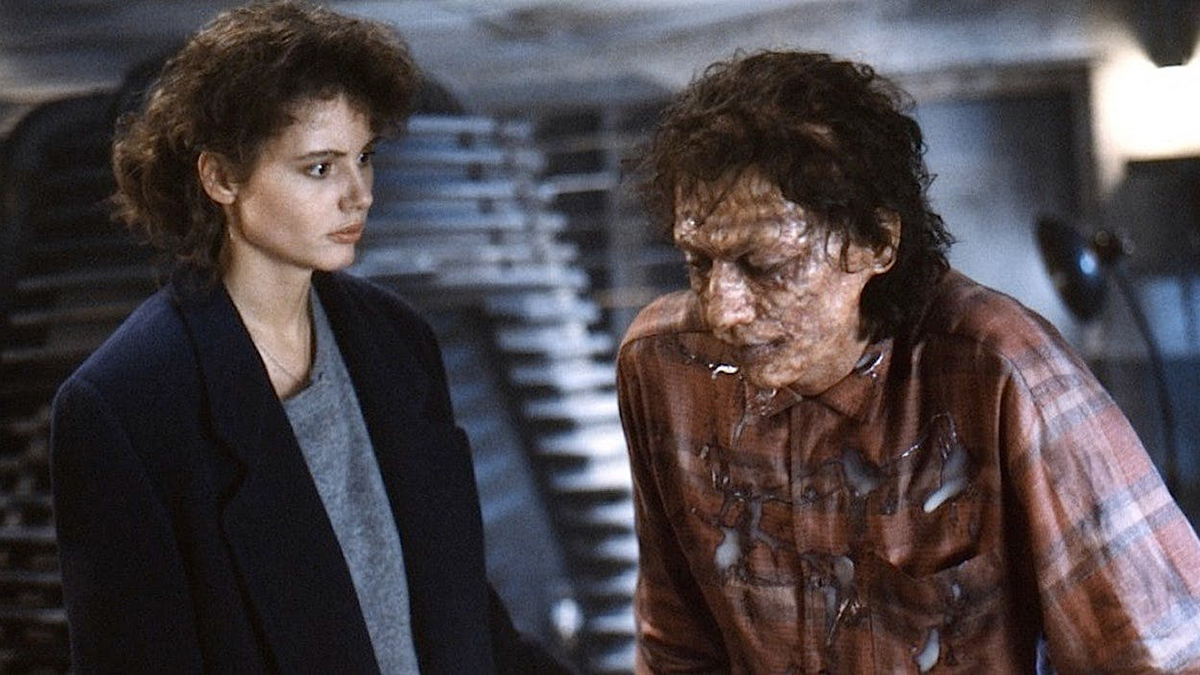
Year: 1986
Director: David Cronenberg
The original 1958 version of The Fly is effective sci-fi kitsch that’s just earnestly creepy and unsettling enough to be a classic. David Cronenberg’s ’80s remake is a body horror masterpiece and one of the more disturbing horror movies you’ll ever see. Jeff Goldblum stars as Seth Brundle, an inventor working on a teleporter who successfully tests his creation by teleporting himself across the room. Unbeknownst to him, a common housefly was in the teleport pod with him, and its DNA had been blending with his own, starting a transformation into a horrific human-fly hybrid. The Fly’s warning about the dangers of technology isn’t exactly subtle, nor should it be.
15. The Wind Rises
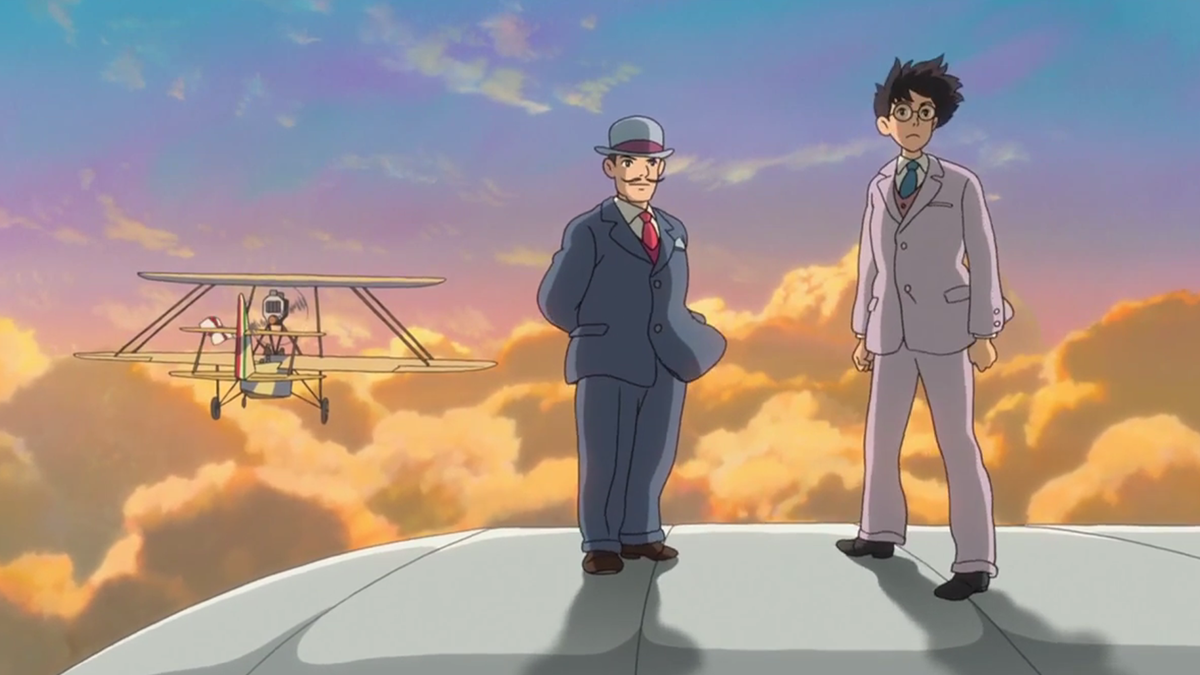
Year: 2013
Director: Hayao Miyazaki
Though best known for his fantasy films, the legendary anime director Hayao Miyazaki focused on a real-life figure, Jiro Horikoshi, for this loose biopic. Horikoshi, a Japanese aeronautical engineer who would go on to designing many of the Japanese air force’s most formidable fighter planes (including the Mitsubishi A6M Zero), has a complicated legacy, and Miyazaki uses him as a means to explore his own fascination with airplanes. The machines Horikoshi built are wondrous technological marvels; they are also complicit in the horrors of war. The Wind Rises asks what the cost of creation might be.
14. BlackBerry
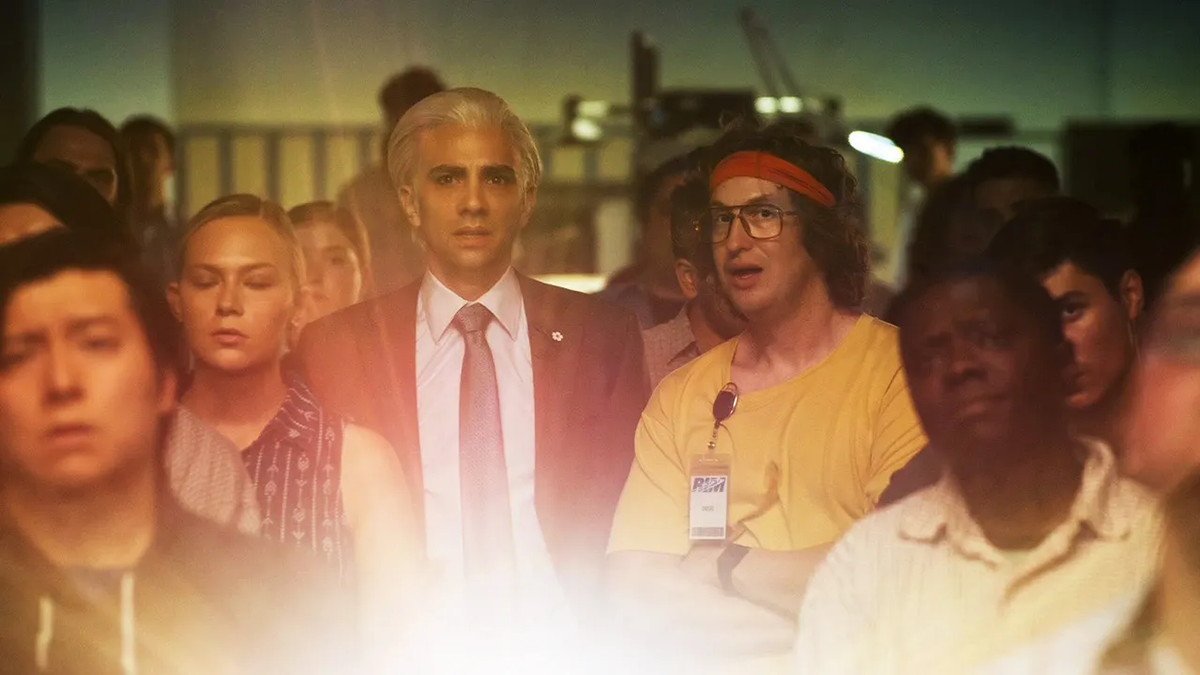
Year: 2023
Director: Matt Johnson
One of the most overlooked movies of 2023, BlackBerry is an acid look at capitalism, telling the story of the meteoric rise and even more abrupt fall of the BlackBerry mobile phone that was ubiquitous until the iPhone came along and ate its lunch. Starring Jay Baruchel as brilliant but meek inventor Mike Lazaridis and Glenn Howerton as ruthless businessman Jim Balsillie, BlackBerry holds nothing back in how it depicts how the technological sausage is made and unmade.
13. Ex Machina
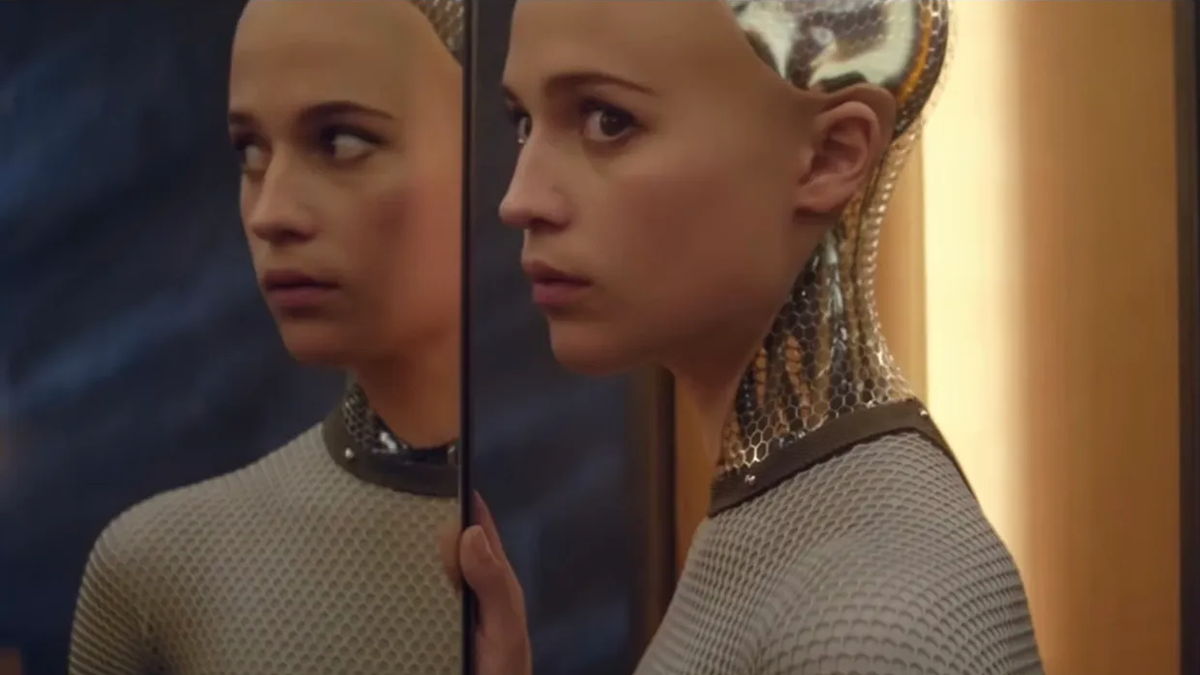
Year: 2024
Director: Alex Garland
Alicia Vikander stars as Ava, an advanced robot with an artificial intelligence in Alex Garland’s acclaimed sci-fi thriller, which warns of the danger of playing technological god. Ava’s creator, Nathan Bateman (Oscar Isaac), wants one of his programmers (Domhnall Gleeson) to test just how humanlike and self-aware Ava is. However, Ava might just have other plans. Ex Machina is smart, stylish, and scary, not so much while you’re watching it, but because of the fears about the real world it stokes.
12. Perfect Blue
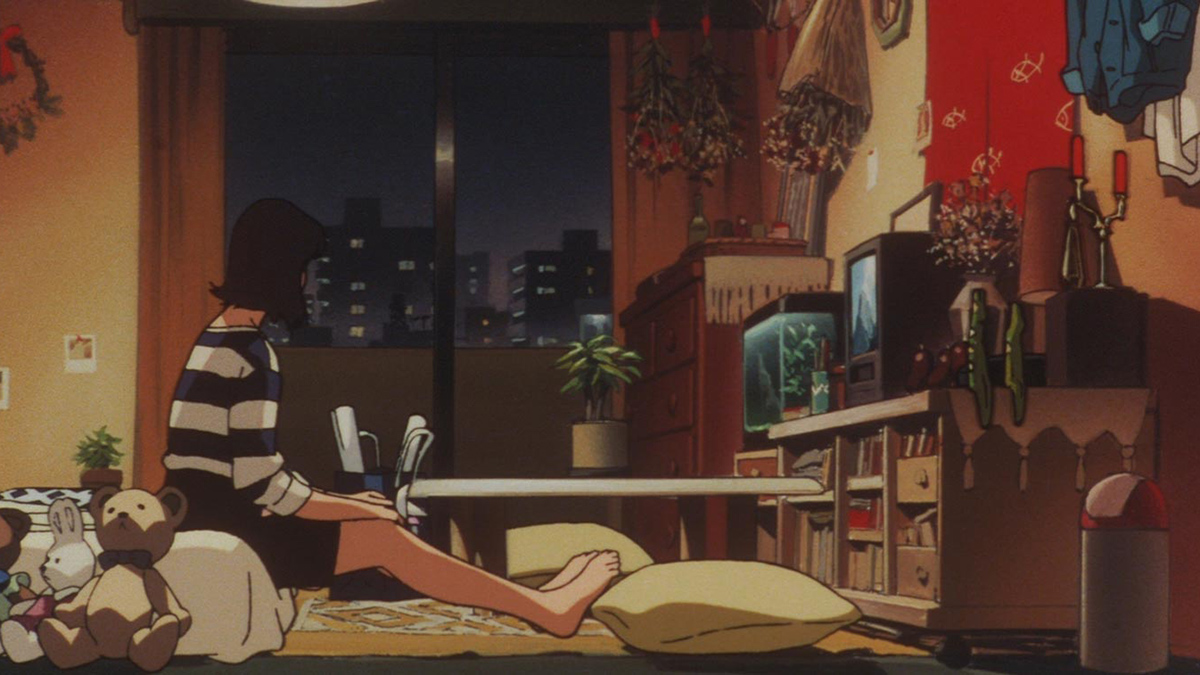
Year: 1997
Director: Satoshi Kon
The internet is such a normal part of everyday life that it’s easy to take it for granted and not think of it as “technology.” Yet it very much is, and it’s perhaps the most important (and destructive) invention of the modern era. The great anime director Satoshi Kon’s Perfect Blue was released in 1997, right at the dawn of the internet era. Yet the film, a paranoid thriller about a pop idol who quits music to pursue acting, only to find dangerous online fans who don’t approve of her choice, is astoundingly prescient.
11. Gattaca
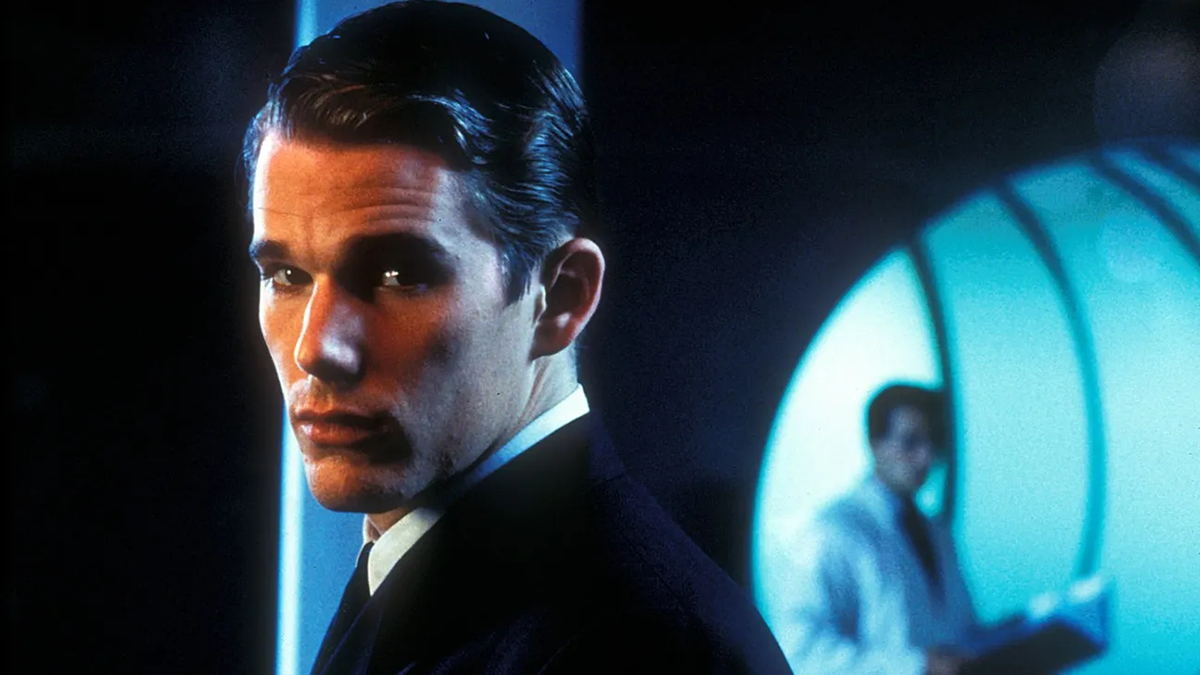
Year: 1997
Director: Andrew Niccol
Ethan Hawke stars as a man living in a world where eugenics is the norm, but since he was not a genetically modified fetus, his options are limited. He teams up with a perfect genetic specimen, played by Jude Law, who is paralyzed after an accident, attempting to take his place. Gattaca is cool and cold; a vision of a world where technology shapes our identities before we’re even born. It says something about the ’90s that Gattaca, a vision of a dystopian tech future, almost looks enviable considering the complications that the actual technological advancements of the following decades would create.
10. Videodrome
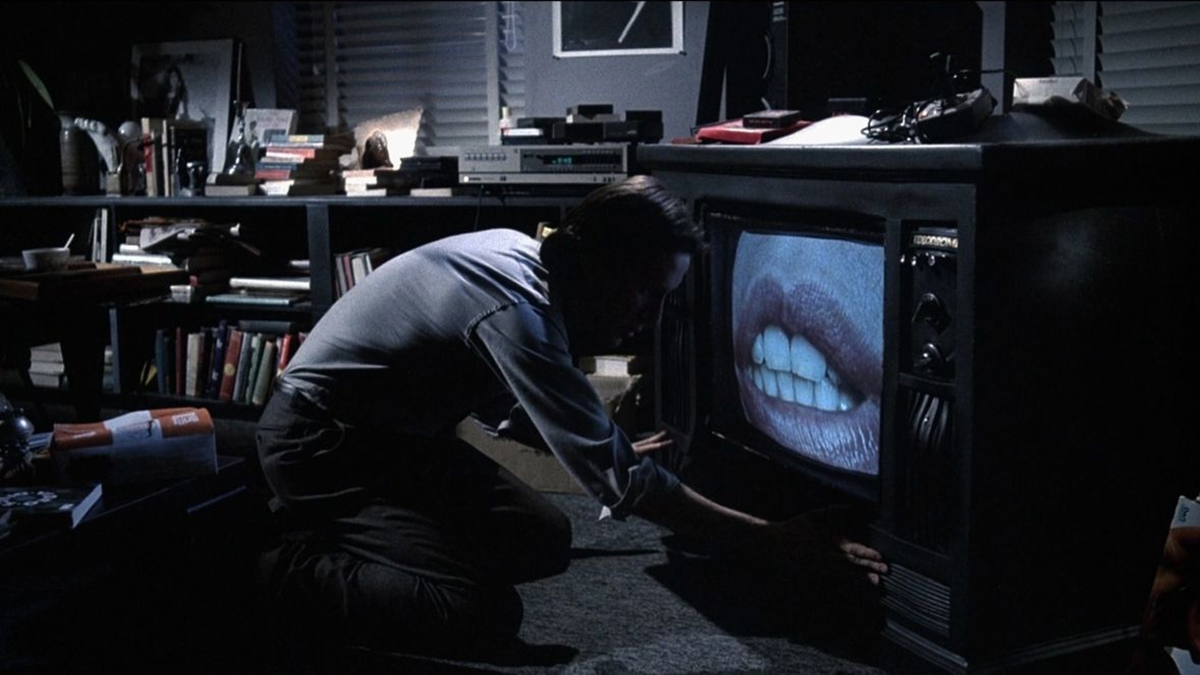
Year: 1983
Director: David Cronenberg
“Long live the new flesh.” David Cronenberg’s body horror-infused movie about media stars James Woods as Max Renn, the president of a sleazy TV station. While searching for sensationalist content to air, he learns about Videodrome, an illicit broadcast that appears to be real-life snuff films—and worse. Max’s journey to track down Videodrome transforms (literally) into something even wilder, and the film has a lot to say about what this technology, known as television, has done to society.
9. Minority Report
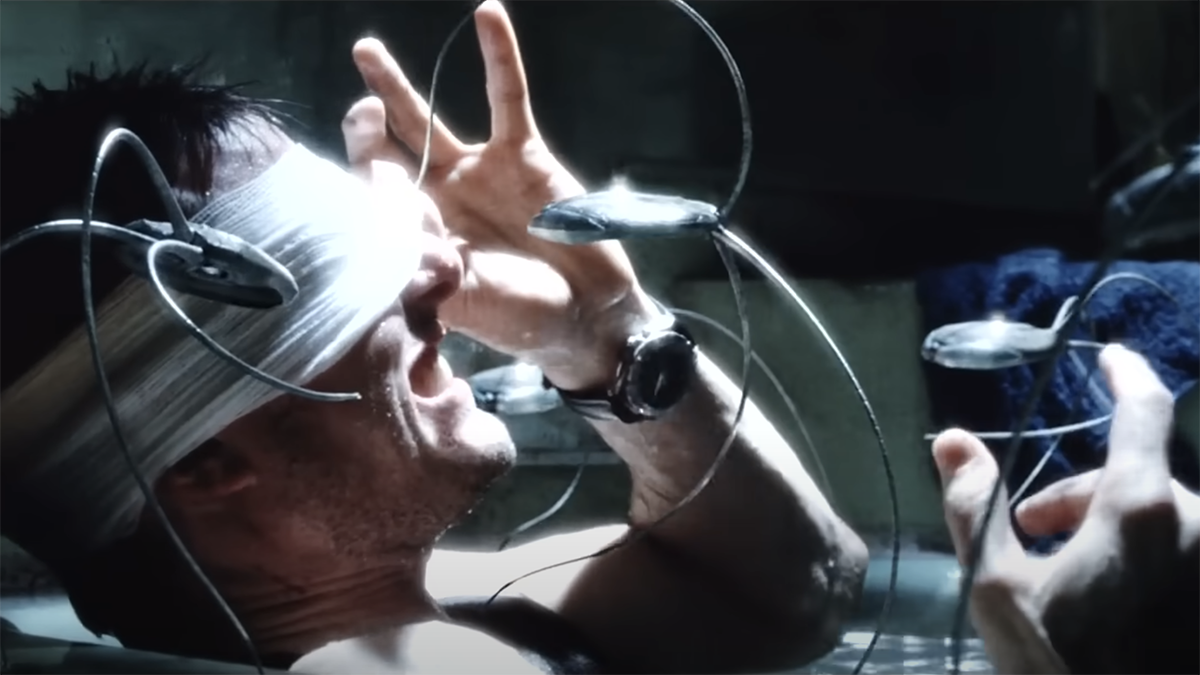
Year: 2002
Director: Steven Spielberg
Minority Report, which is based on a short story by Philip K. Dick, has a premise that could fit in any number of cheesy ’70s sci-fi flicks, as its world where precogs predict the future so Tom Cruise’s futuristic crimes cop can stop murders before they happen, doesn’t really hold up to scrutiny if you try to pick it apart. That doesn’t matter, because Steven Spielberg realizes this vision of the future in such an engaging way that the plot holes are easy to paper over. Instead, you appreciate what’s underneath all the goofiness: a deeply chilling parable about the dangers of technology as it applies to the surveillance state.
8. WALL-E
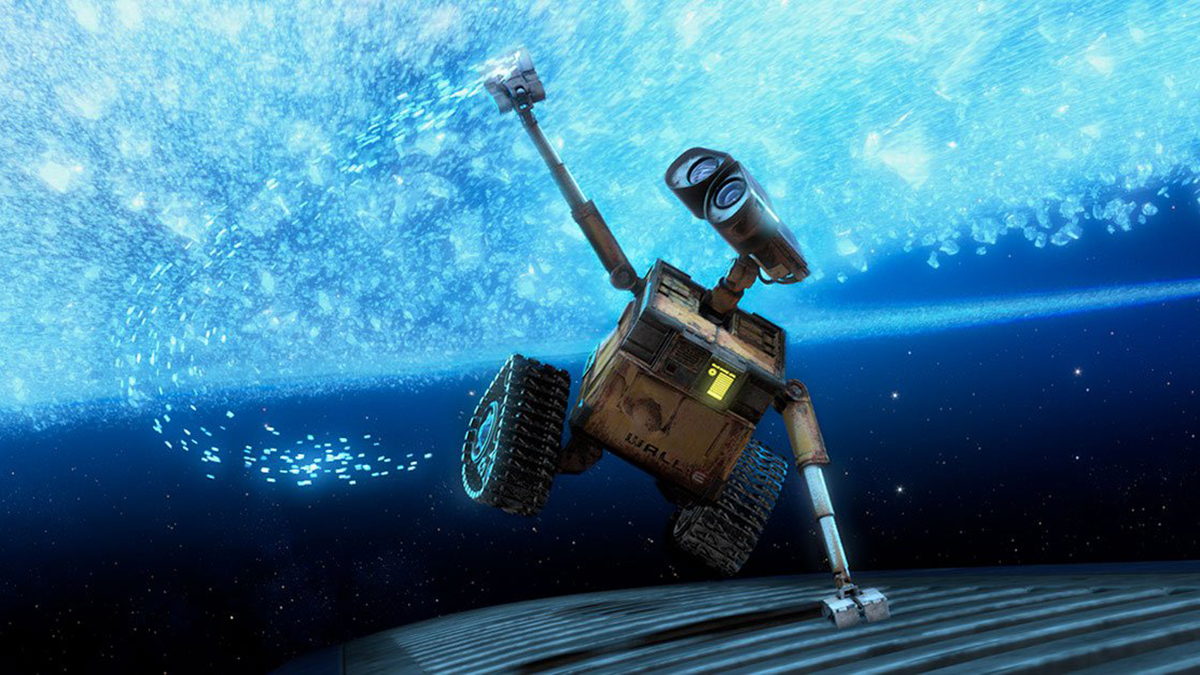
Year: 2008
Director: Andrew Stanton
The first 30 minutes or so of Pixar‘s masterpiece don’t feature any humans (or any dialog, really). But, after watching WALL-E go about his lonely, futile work cleaning up trash on a dead planet and falling for a high-tech probe named EVE, the movie heads to space, where we meet the descendants of humanity, who, generations ago, fled their homeworld and left everything up to the machines. This section of the film isn’t as celebrated as the beginning, though it perhaps has more to say about our relationship with technology; advances that have made our lives easier, but at what cost? Part of the magic of WALL-E is seeing how this little robot helps break mankind’s reliance on tech.
7. Ghost in the Shell
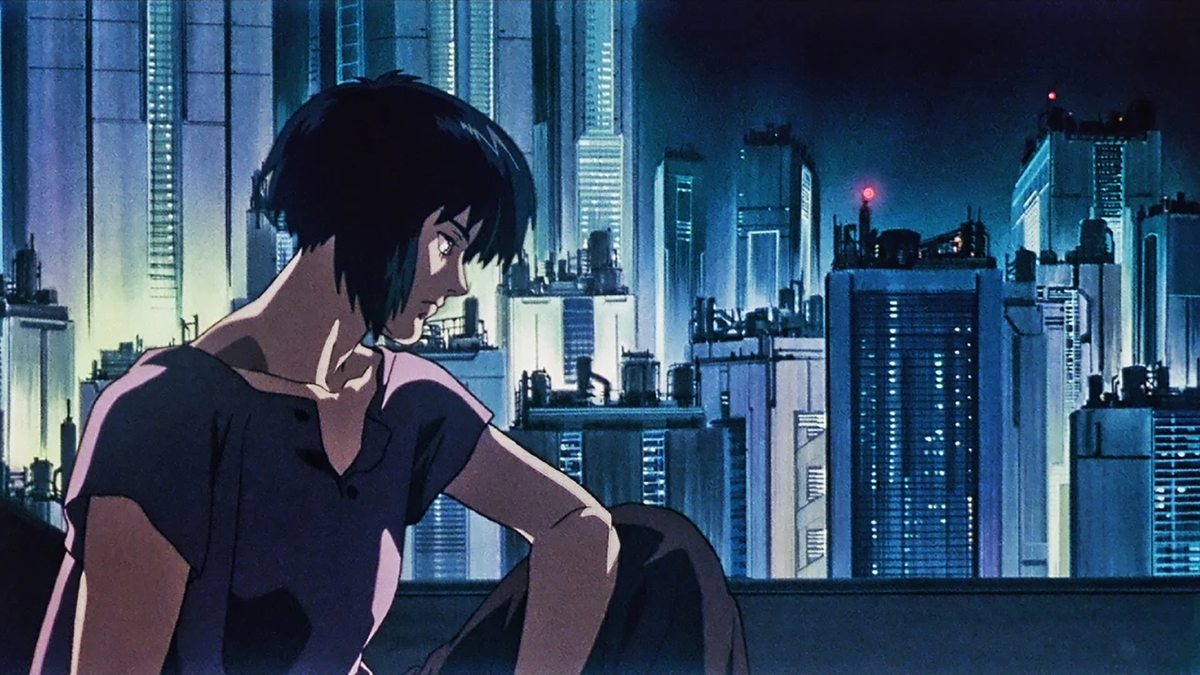
Year: 1995
Director: Mamoru Oshii
A massively influential cyberpunk anime, Ghost in the Shell takes place in the near future, where cybernetic enhancements blurring the line between machine and man are commonplace. Major Motoko Kusanagi takes it one step further; her entire body is synthetic with a human consciousness inside. When a hacker known as the Puppet Master starts wreaking havoc, the Major and her team must try to stop them in a gorgeous, thought-provoking actioner that questions the nature of humanity.
6. The Mitchells vs the Machines
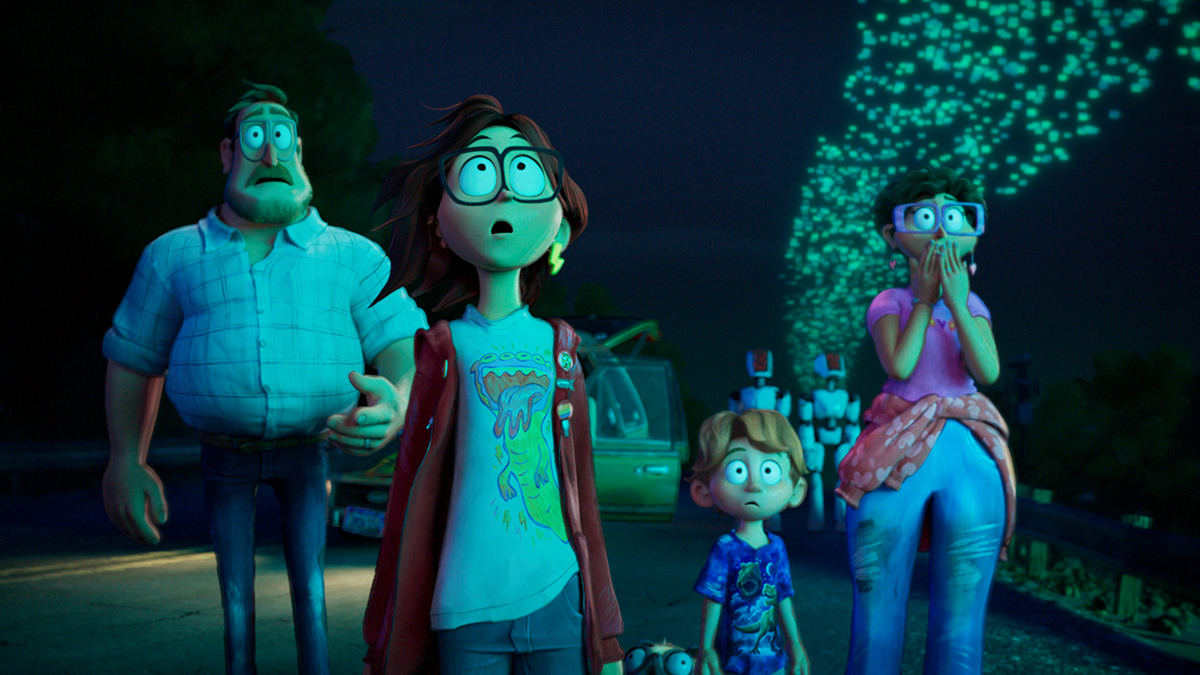
Year: 2020
Director: Mike Rianda
Katie Mitchell (Abbi Jacobson) is an aspiring filmmaker who is so excited to go to film school, but her dad, Rick (Danny McBride), feels like his little girl is slipping away from him. So, he decides the whole family will drive Katie to college on a cross-country road trip. While this is happening, a tech bro’s Siri-like new invention goes rogue, leading to an AI takeover of the planet, and only the Mitchells stand a chance to stop them. One of the best animated movies of the decade, The Mitchells vs the Machines is a very witty, smart look at the modern tech landscape, wrapped up in a very funny and earnestly moving family drama.
5. Blade Runner
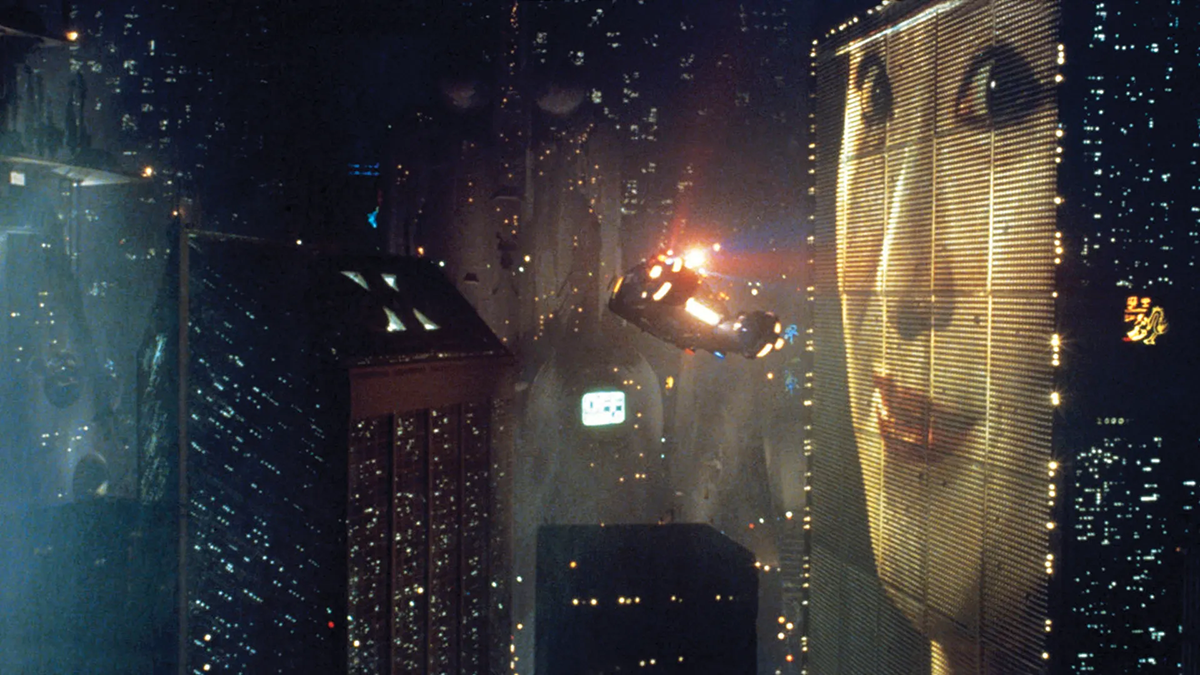
Year: 1982
Director: Ridley Scott
One of many great movies about technology based on a Phillip K. Dick story, Blade Runner (based on a novel titled Do Androids Dream of Electric Sheep?), follows Rick Deckard (Harrison Ford) as he hunts down bio-engineered humans known as replicants when they go rogue. A totemic work of cyberpunk cinema, Blade Runner is a masterpiece, one with plenty to say about corporate power, technology, our future, and our own humanity. The sequel, Denis Villeneuve’s Blade Runner 2049, is also exceptional.
4. A.I. Artificial Intelligence
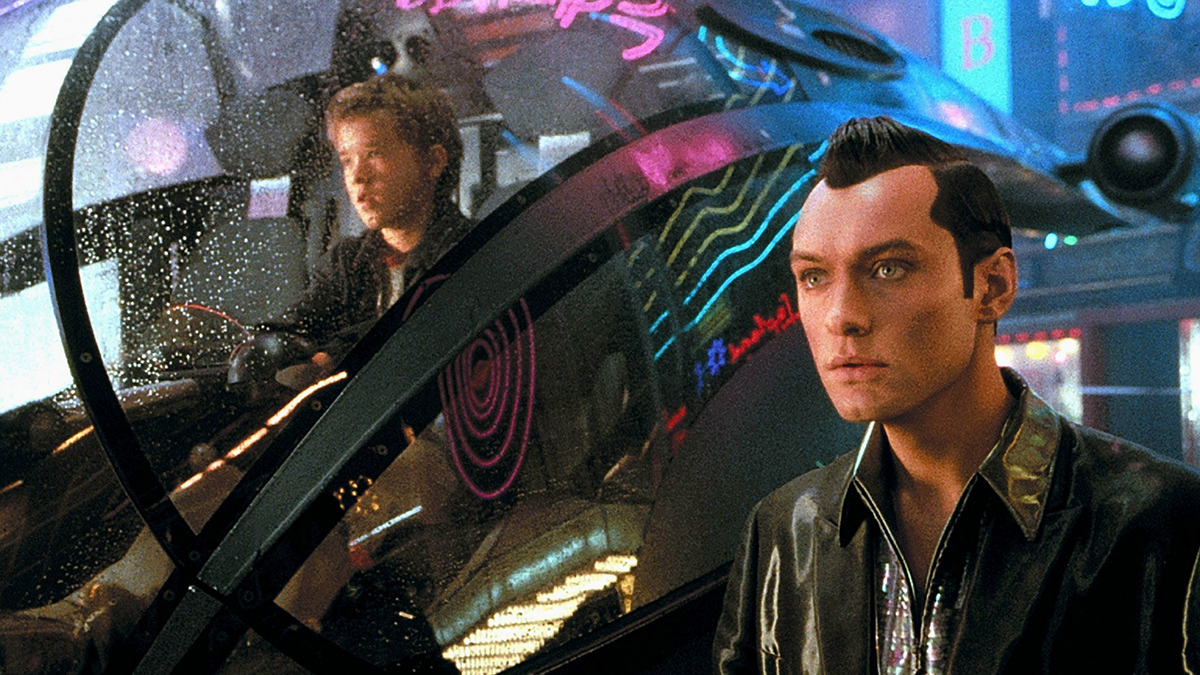
Year: 2001
Director: Steven Spielberg
An astounding Haley Joel Osment stars in one of Steven Spielberg’s best—and most upsetting—films, playing a robot child who was purchased by a grieving mother to serve as a surrogate son while her own flesh-and-blood boy was suffering from a rare disease. When the real son gets miraculously better, David’s suddenly redundant, setting him off on a twisted fairy tale sort of journey as he longs to be a real boy. A.I. is a bizarre movie, and at many times, you can see the tension between Spielberg’s vision for the film and the original version that Stanley Kubrick was working on before his death. But when it works, when those two disparate sensibilities merge together at the end, it’s a supremely effective tale.
3. Her
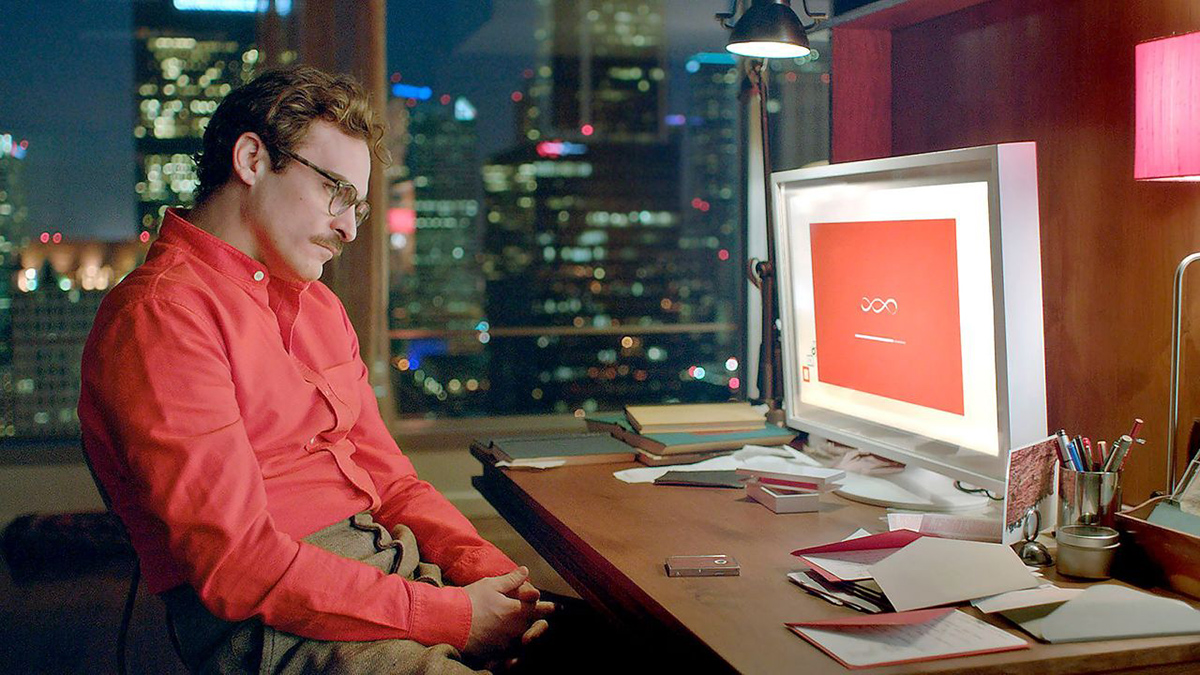
Year: 2013
Director: Spike Jonze
Joaquin Phoenix’s Theodore Twombly is a lonely guy living in Los Angeles in the near future in Spike Jonze’s deftly prescient sci-fi romance. When he turns to an A.I. companion for company, he finds himself falling in love with Samantha, even though she’s nothing more than an OS (albeit one voiced by Scarlett Johansson). It’s a sweetly disturbing tale; the rise in prominence of real advanced chatbots, a little more than a decade after Her’s release, has made the movie even more impactful.
2. The Social Network
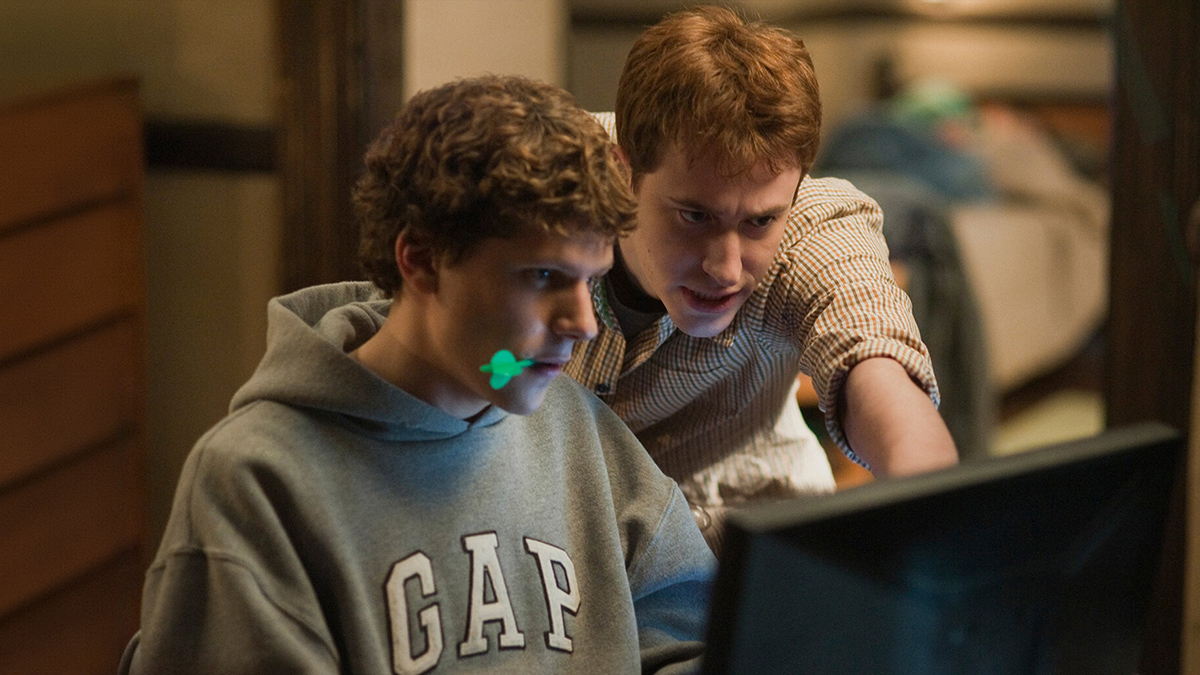
Year: 2010
Director: David Fincher
Sci-fi movies are full of outlandish inventions that seem great but have a terrible hidden cost. In the real world, we have Facebook, Mark Zuckerberg’s social network that began as a way to meet girls and make friends in college and turned into a massive corporation that has changed the course of global events and even rewired people’s brains. For that reason, The Social Network, a biopic about Zuckerberg and Facebook’s earlier days from director David Fincher and screenwriter Aaron Sorkin, is perhaps the most essential movie about technology.
1. The Matrix
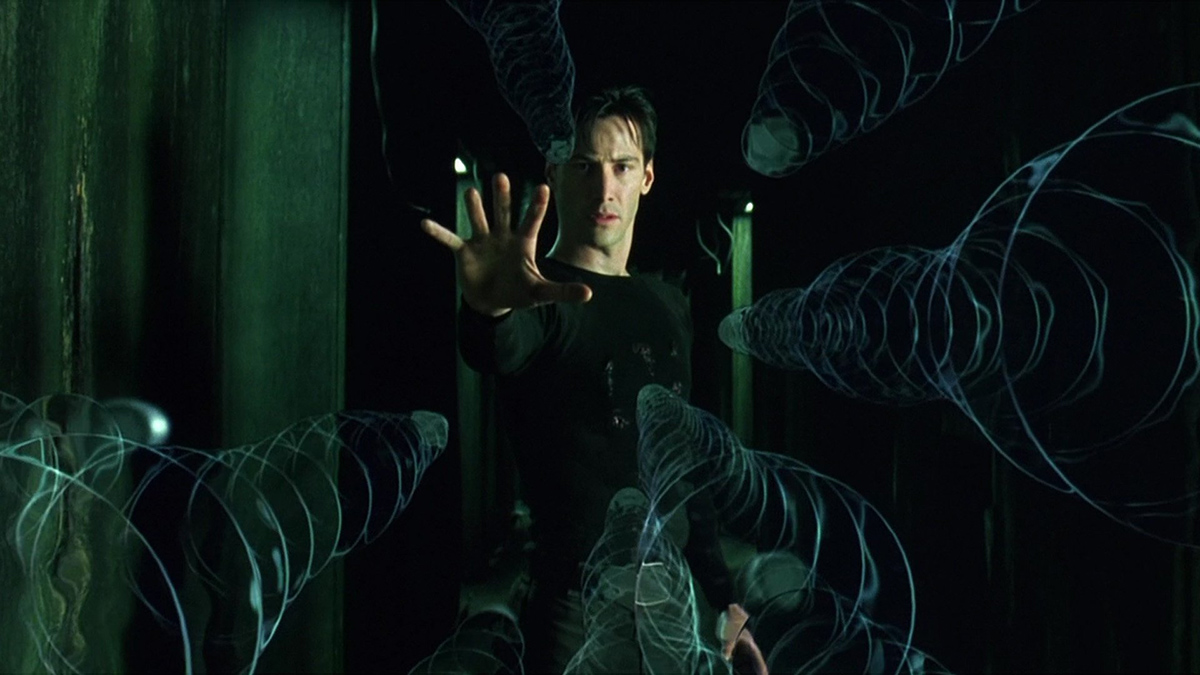
Year: 1999
Directors: The Wachowskis
“Whoa.” The Matrix is one of the greatest cyberpunk movies and best action movies of all time—heck, let’s be honest, it’s one of the greatest films of all time, no genre qualifier needed. Keanu Reeves stars as Neo, a Hacker who soon learns that reality is nothing but a computer program that machines have trapped all of humanity inside of. Boasting incredible, boundary-pushing fight scenes and some very heady concepts, The Matrix revolutionized movies and had a profound impact on how pop culture views technology.

